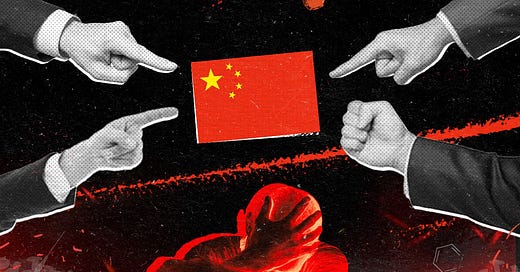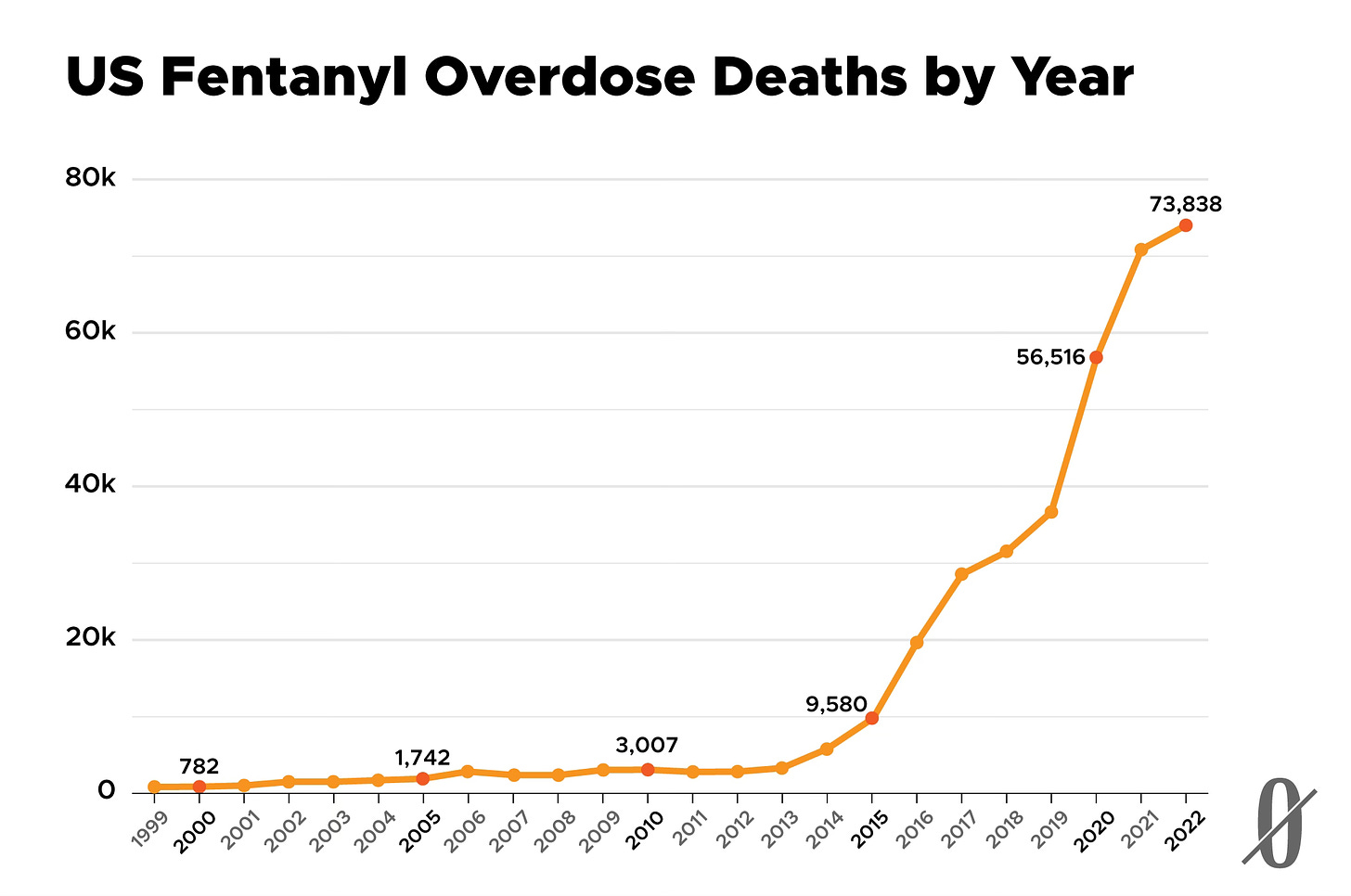How China-Bashing Fuels the Fentanyl Crisis
No, Beijing isn’t waging “drug warfare” against America.
Note: NZN members have access to exclusive audio content related to this issue. Click here to listen to an audio version of the essay and here for Andrew’s interview with investigative journalist Ben Westhoff.
Each year, fentanyl kills more Americans than died in the Iraq, Afghanistan, and Vietnam wars combined. It has killed toddlers and senior citizens, social workers and CEOs. Beloved musicians have perished: Tom Petty and Prince, two Boomer icons, fatally overdosed on the synthetic opioid, as did the Millennial rapper Mac Miller. Even when it doesn’t kill, fentanyl ruins lives, robbing millions of Americans of their jobs, homes, health, and loved ones, and costing the US economy around $1 trillion annually.
China has played a big role in America’s fentanyl crisis. Prior to 2019, it was the primary source country for US fentanyl buyers, with Chinese sellers delivering pills by international mail and private couriers. After that year, when Beijing placed all fentanyl variants or “analogues” on its list of controlled substances, Chinese involvement became less direct but remained significant. Today, drug cartels in Mexico have taken over manufacture of the drug, while Chinese sellers provide chemical “precursors” needed for its production.
The China-fentanyl connection has become a hot-button issue in US politics. This election year, candidates from both major parties have been attacking their opponents as weak or complicit in the face of a growing Chinese threat. Democratic Senator Bob Casey has highlighted his Republican challenger’s ties to a Chinese firm that makes the drug (without acknowledging that the firm produces legal fentanyl used in hospitals). Republican vice presidential candidate J.D. Vance, in his speech at the GOP’s National Convention, blamed political elites for flooding the country with “deadly Chinese fentanyl.”
Candidates have good reason to burnish their anti-fentanyl bona fides. According to a Morning Consult tracking poll from February, 79 percent of swing-state voters consider fentanyl to be a “very” or “somewhat” important issue when deciding which presidential candidate to vote for—higher than for the Ukraine war, the Gaza war, abortion, or climate change.
But heightened attention to the fentanyl crisis doesn’t mean that US policymakers are getting closer to solving it. From the way many people talk about the problem, you’d think the Chinese government was manufacturing mountains of fentanyl and shipping it to America by the container load. In reality, Beijing’s contributions to the crisis have been passive and indirect. Meanwhile, those in Washington who are most vocal about the crisis are among the biggest obstacles to addressing it. Many of them have leveled wild accusations about Chinese “drug warfare” and advocated confrontational policies that have tended to make Beijing less cooperative on fentanyl and other issues. While China’s behavior hasn’t always been helpful, neither has it been grounds for a scorched-earth response, especially since Beijing has been cooperative on the issue during friendlier periods. The sooner US officials can arrive at a saner understanding of the crisis, the sooner they can get around to actually solving it.
Fentanyl is an international issue, but only America suffers from the drug on such a colossal scale. That’s largely thanks to the over-prescription crisis in the 1990s and early 2000s that left millions of Americans addicted to opioids. Since 2013, untold millions of drug abusers have found their way to fentanyl—often without meaning to. The drug gets formulated into counterfeit versions of prescription pills that Americans seek on the underground market. And it’s routinely cut into heroin, cocaine, and other drugs by dealers looking to save money, with miniscule amounts packing a powerful, potentially lethal punch. Fentanyl is not only cheaper than heroin but around 50 times more potent. The equivalent of a few grains of salt can kill you, and cartel chemists can have a heavy hand when dosing.




